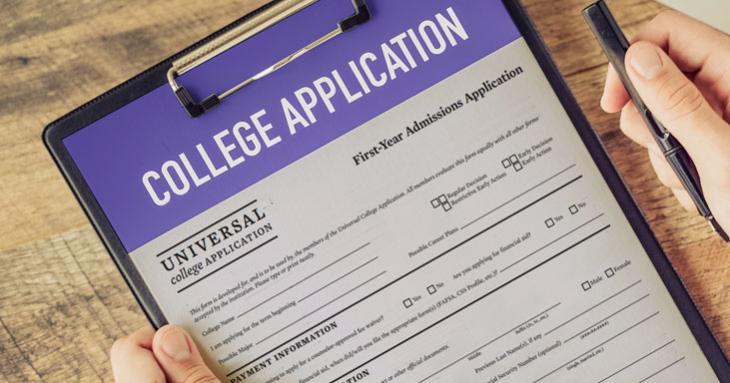-
Finding Money for College
The college process is daunting. Between standardized tests, submitting applications, and waiting to be accepted, it’s not easy. Once accepted, there’s the question of how you will pay for college. Many Native students do not have enough funds readily available to cover their schooling. That’s where scholarships come in. Today, there are some amazing scholarship opportunities to help Native students on their college journey. Here are a few of the top scholarships to consider.
-
How to Take Control of Your Future During College
College is a time for you to explore, try new things, and learn more about yourself. Over the course of four years, you may find that your interests change, your goals look different, and your future isn’t necessarily what you thought it would be. Four years pass quickly, so use this time wisely to set yourself up for the future. Here are a few ways to do just that.
-
Five Tips for Managing Stress on Campus
Being a college student in today’s world is stressful. You have to worry about classes, your living situation, whether or not you need to work, making friends, and more. Not only is your day packed with classes and activities, it’s also probably packed with stress. Don’t let stress derail your college experience. Here are five tips for managing stress on campus.
-
Steps to A Successful College Application Process
The college application process can seem daunting. Add in the complications that come from applying during a global pandemic, and many students may be ready to throw in the towel before they've even begun. Here are a few tips for a successful college application process.
-
Must-Have Apps for Success on Campus
Being a college student is hard. You have to worry about classes, your living situation, whether you need to work, making friends, and so much more. It’s a lot, and it can be overwhelming. Luckily there are a number of different tools to help you successfully navigate your college career. Here are a few apps to keep you on top of everything from class to cash.
-
Top five life skills to learn before heading to college
So you’re starting college soon. It’s a big deal, especially if you’ll be living away from home for the first time. While the amazing experiences ahead will be accompanied by some challenges along the way, there are key life skills that will help you stay on the path to graduation. Mastering these five things could make a difference for you before, during, and after college.
-
Graduate School or No: Weighing Your Choices After Graduation
It seems like you can’t go to college these days without someone asking if you’re going to graduate school. For some, the answer is clear. For others, the decision is much more complex. Here are some questions to ask yourself as you decide whether grad school is right for you.
-
How to Stay True to Your Native Culture at College
Going to college is a big deal, and every newcomer to higher education wants to grow, succeed, and graduate. An increasing number of Native American college students are no longer first generation, and organizations like AISES are committed to promoting increased access, equity, and inclusion. Completion rates for Native students still lag behind those of other students. Academic observers continue to emphasize the need to move “beyond the asterisk” — a reference to the frequent use of this symbol (*) in enrollment data to indicate that Native students were too few to be counted.
-
How to Network and Get Involved During a Virtual Semester
A year ago life as we knew it completely changed. Large gatherings were canceled, PPE became a familiar term, and everything went virtual. From classes to social gatherings, you had to get used to seeing everything—and everyone — on a screen. And while we may be used to it, attending college virtually isn’t easy. Here are a few ways to network and get involved during a virtual semester.
-
How to Make the Most of Remote Learning
So here we are, about a year into life with COVID-19 — still doing so much online, including learning. Teachers, students, and their loved ones have been making heroic efforts to adjust, and even the toughest among us have had to fight through some degree of “Zoom Gloom” or virtual fatigue. But with vaccines in distribution and months of evidence about how resilient we can be, now is no time to give up on remote learning. Instead, let’s talk about how to take your online education to the next level.











